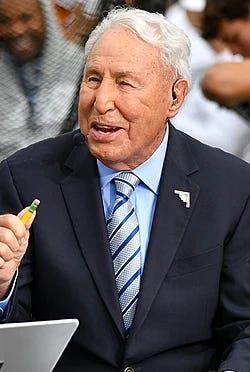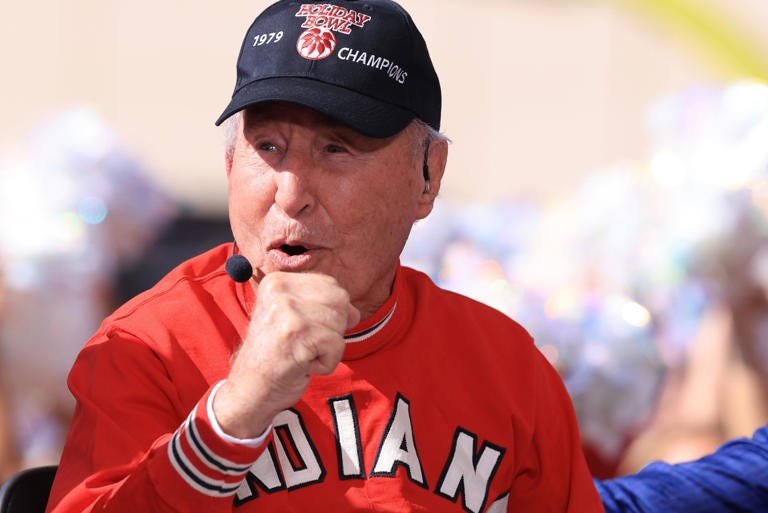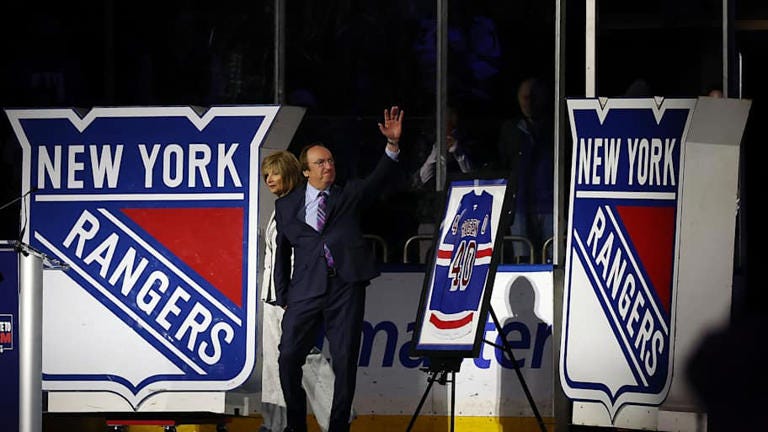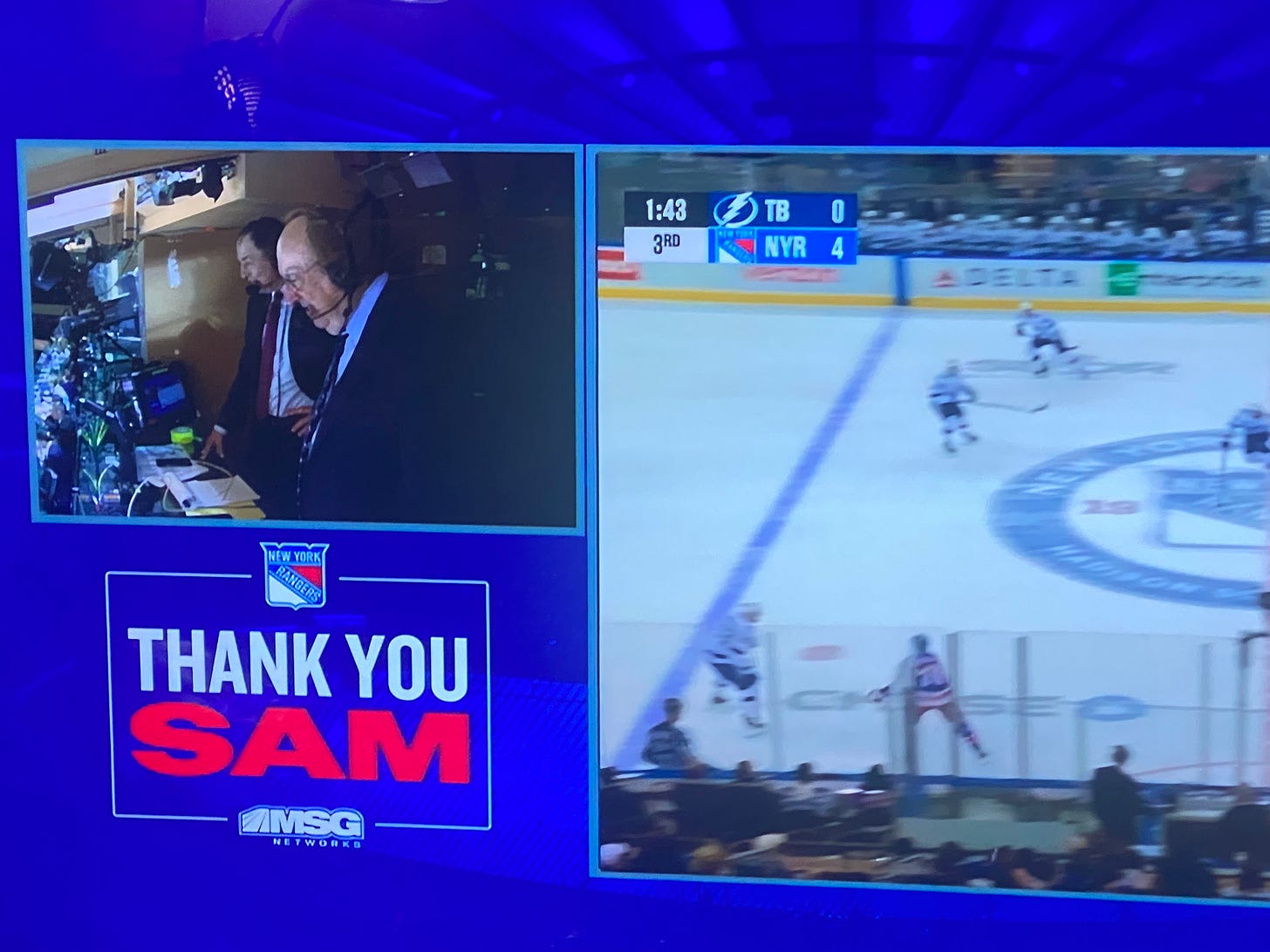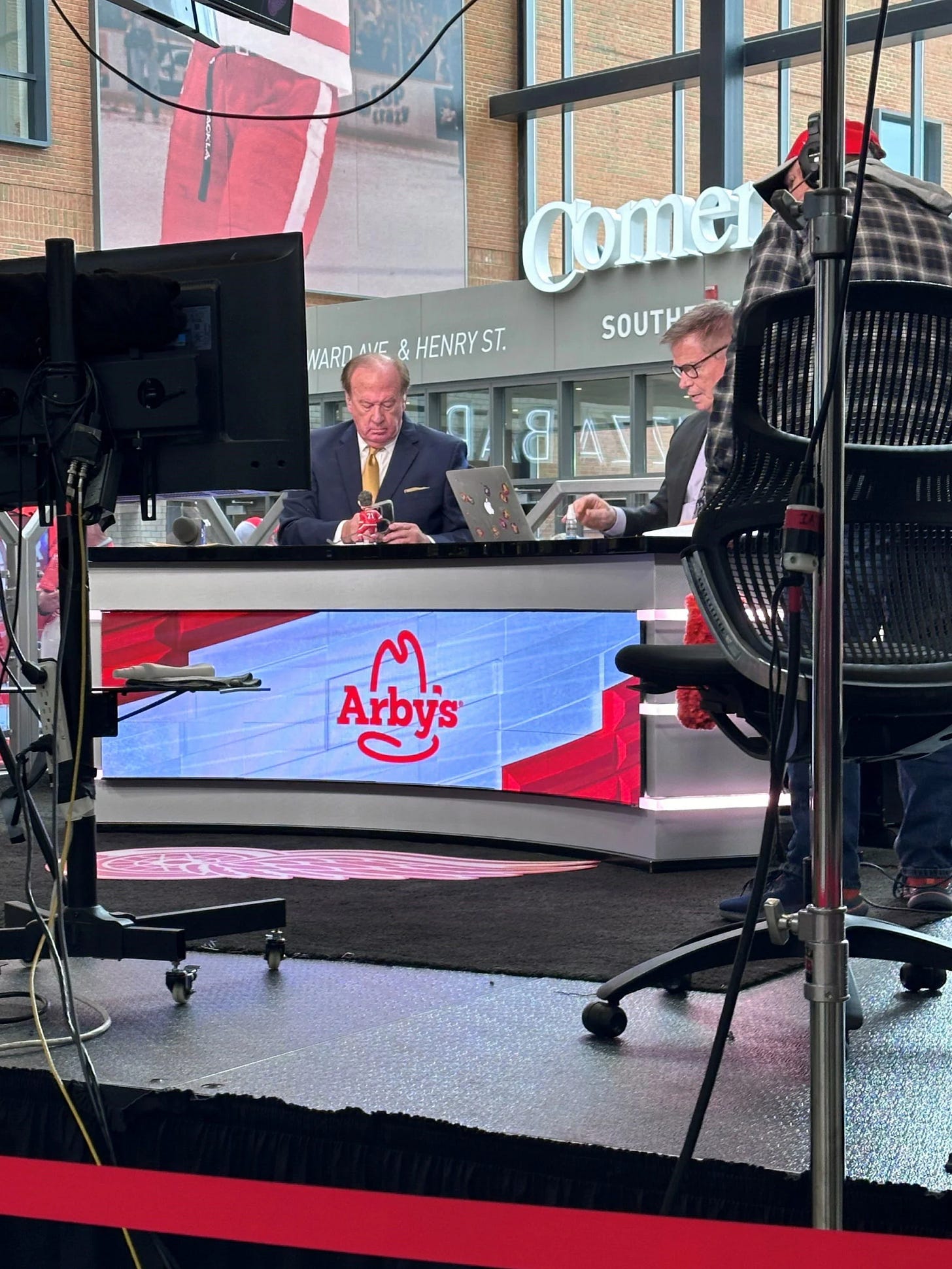Not So Fast, My Friends
NOTE: This also appears today on our sister site, www.thedoubleovertime.com. Please visit it regularly for coverage of sports of all sorts plus occasional essays on technology.
I’ve never had any illusions that I could have ever had enough athletic prowess to justify my presence on a field, rink or pitch. And I’m far too old and inept to harbor any delusions that somehow I could be miraculously trained to do at this point. So no matter how much of a lover of all things sports as I have been since childhood, it’s been exclusively through the lens of a fan.
But I have been blessed with the opportunity to have worked with executives and talent in sports, and through that world I’ve at least gotten to know my fair share of former and even current athletes. And what apparently most of us share is an appreciation and passion for the greats that preceded us and inspired us to devote so much of our time and attention to this world–and most reverently with those that have seemingly been around longer than we can easily remember.
Which is why I got just a bit more somber and reflective yesteday when I saw this story from THE ATHLETIC”s Lauren Merola drop:
After nearly four decades and more than 400 mascot heads, Lee Corso is stepping down.
Corso, 89, is retiring from ESPN’s “College GameDay” after Week 1 of the 2025 college football season, the network announced Thursday. Corso will make his final headgear selection — a Saturday morning staple since 1996 — on Aug. 30. The destination for the Week 1 show will be announced later this spring, ESPN said. Corso has been a “College GameDay” analyst since the show’s inception in 1987, when it began in a studio in Bristol, Conn. He departs as its longest-reigning member and last remaining original on-air personality. Corso became a staple of the program alongside host Tim Brando and analyst Beano Cook, and remained so for 38 seasons.
As a passionate football fan long before that show existed, I knew Corso as a coach, most notably at the rarely competitive Indiana University, where on the rare occasions when his school was given national attention his effervescent personality stood out. In those earlier versions of GameDay, his ability to convey insights on otherwise complex playbooks reminded me of what I saw on the pro side with John Madden. And much like Madden, he took full advantage of an outsized personality to gain traction and zeitgeist relevance, though instead of using a telestrator he used a more tangible way to do so, as Merola continued:
“College GameDay” left the studio and hit the road in 1993. Corso’s signature move wasn’t far behind. On Oct. 5, 1996, “GameDay” traveled to Columbus, Ohio — the site of Ohio State’s campus — for what would be a 38-7 Buckeyes’ demolition of Penn State. There, for the first time, Corso didn’t tell viewers his prediction. He showed them. “I like Ohio State, 24-13,” said Herbstreit, in his first appearance as a “GameDay” analyst. “Ay, good pick. I’ll tell you one thing,” Corso said. He then reached for the head of Brutus Buckeye, the Ohio State mascot, under the desk and put it on. “Buckeyes!”
The Ohio State crowd went nuts (pun intended), and a cornerstone of college football culture was born. Since, Corso has handled dogs, chickens and even reptiles on air while shaking Alabama mascot Big Al’s trunk, dressing as the USC Trojan and walking through a makeshift duck pond while twinning with the Oregon Duck — all in pursuit of delivering the perfect Saturday selection.
And I devoted just about every early Saturday morning I was near a TV, and later a device, to see who the heck Corso would choose and what ridiculous look he would leave the show as it signed off to begin the network’s next dozen or so hours of sometimes compelling live games. It was a constant, a comfort, an omnipresence. And even after Corso’s presence became downsized and sporadic following a 2009 stroke, on the days when he was on set the anticipation of his selection kept me connected enough with the ever-expanding program to learn an awful lot more about the sport than I knew.
For those slightly younger than moi, he’s been a presence in their lives practically since birth, which allows me a deeper appreciation for the kind of sentiment expressed by USA TODAY NETWORK’s Matt Hayes earlier this morning:
The grandfather of the game is walking away, which is sort of apropos in these vapid and vacuous times. It’s not your grandfather’s college football anymore, and now the old guy made it official by exiting the building.
Am I the only one who sees this surreal irony? While social media is flush with memories of Corso days gone by, let’s not undersell the obvious final connection of out with the old and in with the new. Maybe it’s just a coincidence that the sport’s ambassador is leaving after the first week of a season where players are officially paid to play, earning a shared percentage of media rights revenue.
(W)e have a marginally successful quarterback holding up a storied program days before the opening of something called the “transfer portal.” Now it’s a player’s right to play when and where he wants, and for how much money he can get on the open market.
We have to evolve with the times, no matter how disruptive they may be. But our links to the past reinforce our desire to do so and when they reach the inevitable end of the line, it’s a jarring experience.
I felt much the same way last night watching the New York Rangers end a hugely disappointing season as well as the run of its longtime broadcaster Sam Rosen. It was big enough news for SPORTS ILLUSTRATED’s Karl Rasmussen to devote a national story to it last night:
The New York Rangers delivered a convincing performance during the final game in the career of longtime play-by-play announcer Sam Rosen, defeating the Tampa Bay Lighting 4–0 in the season finale.
Rosen is set to retire after 40 years announcing Rangers games on MSG. He delivered a heartwarming final call of Thursday’s shutout victory, giving many thanks in what was his last address for the network. Prior to puck drop, the Rangers celebrated Rosen’s career with custom jerseys and patches, which had his famous “It’s a power play goal” call written on them. The jerseys all featured the No. 40, in honor of Rosen’s four-decade tenure as the play-by-play announcer.
Rosen was not the Rangers announcer of my childhood; those distinctions fell to Marv Albert on radio and Jim Gordon on television. Rosen’s associations with both the Rangers and the NFL Giants began when he would fill in for Gordon on the many occasions when he’d have conflicts when the teams would be playing on the same weekend. Much like other New York-based announcers, he grew up as a fan first, rooting from the cheap seats just like I did when we both relied on something called the G.O. Card from our high schools or coupons from the backs of Dairylea milk cartons for dearly needed discounts. He eventually got to meet and eventually succeed his heroes. I never got quite that close, but I know from the experiences I’ve had that being able to do so makes a job and a career all the more satisfying. For at least one more night, the end of the 31st consecutive season where the Rangers failed to win a Cup, Rosen was able to connect and remind us, as James Earl Jones so eloquently said in FIELD OF DREAMS, “when things were good and will be again”. Or at least so we hope.
And I suspect Detroit Red Wings fans had similar emotions earlier this week where their answer to Rosen called it a career, as THE HOCKEY NEWS’ Sam Stockton chronicled:
Monday night’s win over the Dallas Stars wasn’t just the last home game of the regular season for the Detroit Red Wings. It was also the last game at Little Caesars Arena in the illustrious career of beloved Detroit sports broadcaster John Keating. After Detroit secured the win, the Red Wings gathered at center ice to salute the LCA crowd for the final time on the season, then paid direct tribute to Keating, looking up to his perch from the FanDuel Sports Network Detroit set as he looked on.
The Red Wings had their own disappointing season and it’s been quite a while since they won their last Cup as well–to some, 17 years is a lifetime. But moreover, folks like Rosen and Keating, in similar manners to how veteran broadcasters in other sports do, connect multiple generations. Even as the players and even the uniforms change, the soundtrack remains a constant and a desired link to better times.
So when the inevitable finally happens, no matter how lengthy and storied a career these talented folks have provided us, it so often just doesn’t seem long enough.
As Corso would so often chide his on-air colleagues, we’d love to somehow be able to say as these icons head in retirement “not so fast, my friend”. Consider this one way of expressing such sentiment.
Until next time…


